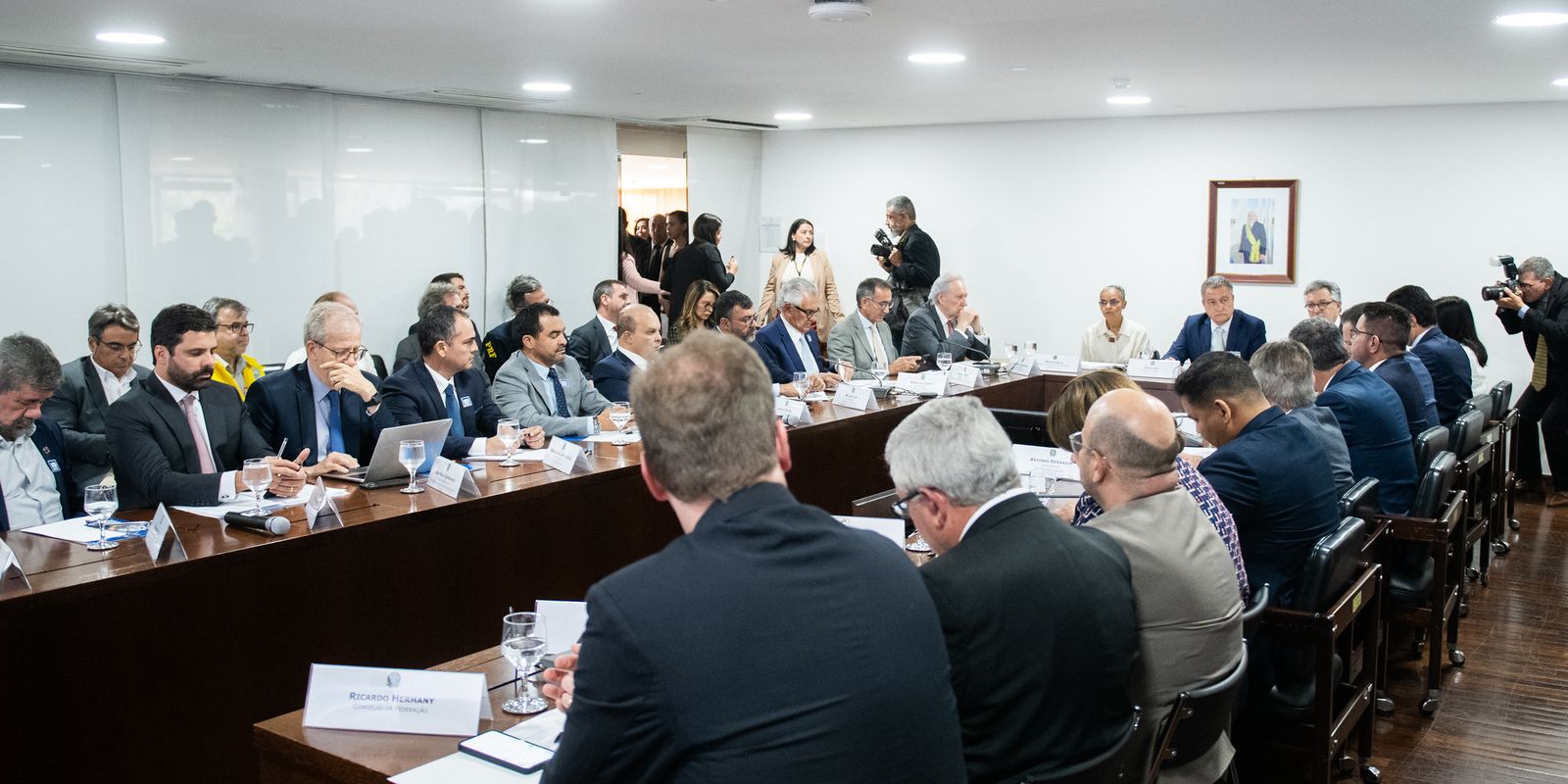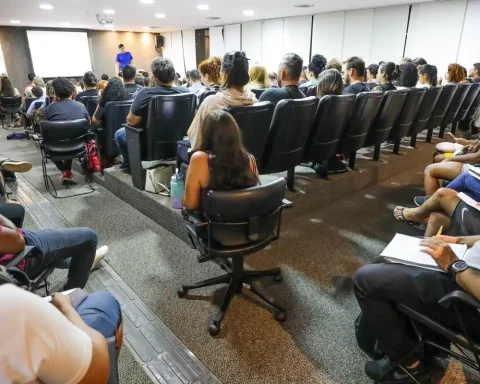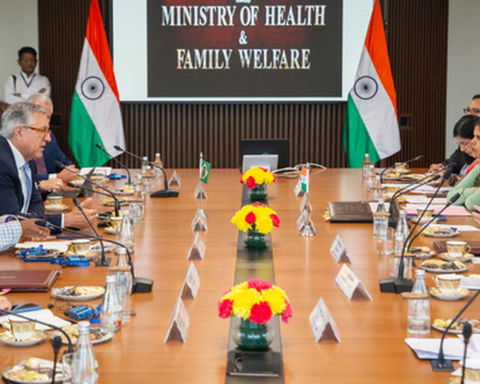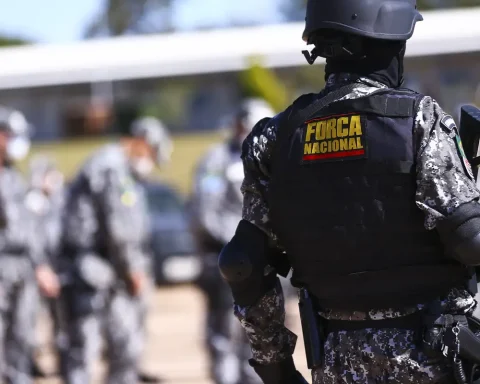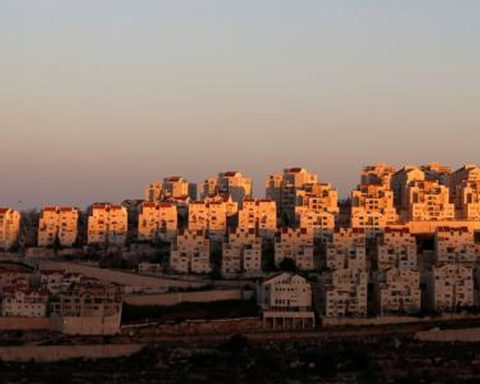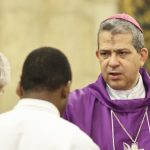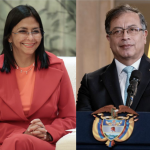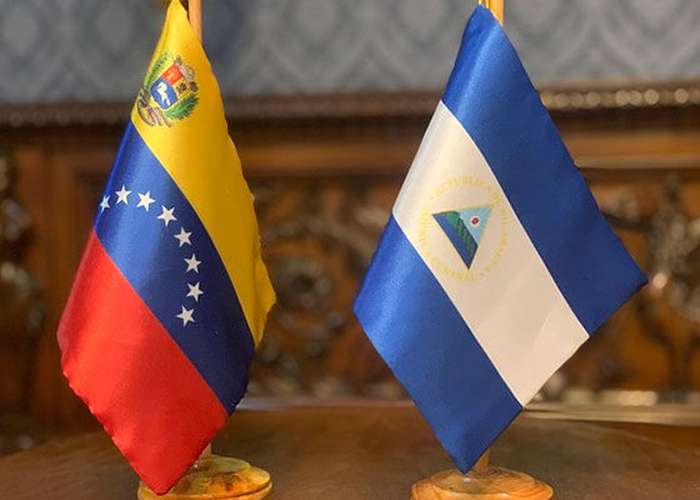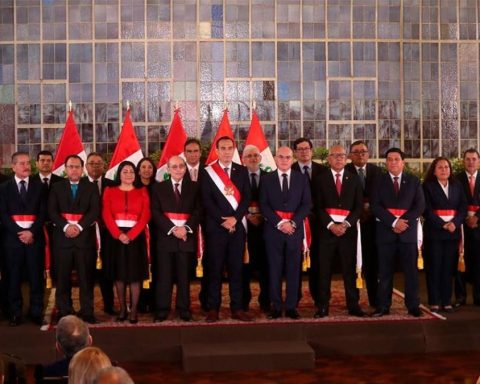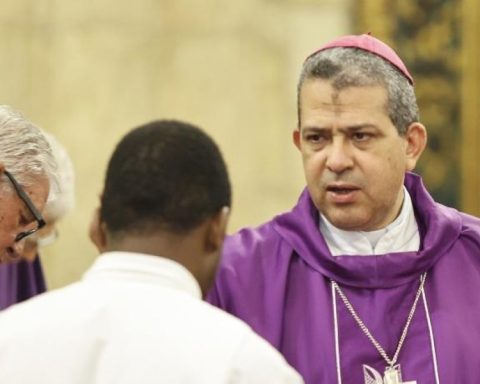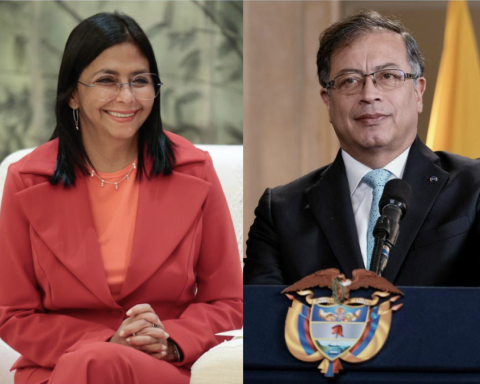Amid the wave of fires in forest and agricultural areas that are devastating the country, governors from the Central-West and North regions met on Thursday afternoon (19), at the Planalto Palace, with federal government ministers to discuss measures to address the problem. One of the main demands presented is the harsher punishment for those who intentionally set fires. Arson was pointed out by the governors themselves as being one of the factors worsening the crisis.
“This year, in addition to a climate problem, which was predictable, we had many fires, many of which were started by clearly criminal actions. No fire starts except through human action. Some through carelessness, some through negligence, but many started through criminal actions,” said the governor of Mato Grosso, Mauro Mendes, in a statement to journalists at the end of the meeting.
He advocated a “huge increase” in penalties to discourage such actions. “In my state, we arrested several people and, within hours, they were released in custody hearings. This is a crime that is causing harm to health, the environment, and the image of the country, with a penalty that does not correspond to the size of the damage it is causing to Brazilian society,” he said.
The governor of Goiás, Ronaldo Caiado, complained about a recent decision by the Court of Justice of Goiás (TJ-GO) that declared unconstitutional part of the state law that increased the penalty for those who commit arson, making it a non-bailable crime if committed during the dry season. “It depends on when the National Congress will deliberate on this matter. I think it is a matter that needs to be discussed again in Brazil, what the role of federalism really is. And we cannot imagine that the governor has to remain inactive in situations that are urgent at that moment, without being able to take action to preserve the fauna, flora, and lives,” he criticized.
Fires in the country have affected more than 11 million hectares this year alone, between January and August. In August alone, more than five and a half million hectares were burned, according to data from the Mapbiomas Fire Monitor, released last week.
Legislation
At the end of the meeting, the Chief of Staff, Rui Costa, reported that Minister Ricardo Lewandowski (Justice) should send to the Chief of Staff by tomorrow a set of measures to change the legislation on the subject. “Including the aspect of punishments related to forest fires, making the punishments more severe, more rigid, but it was a unanimous complaint and it is important for us to highlight it,” stated Costa.
According to him, people have been arrested and released quickly. “All states have made arrests. And many governors, not all, but many complained about the way in which people arrested were released immediately, upon payment of ridiculous amounts. [de fiança] of R$100, R$200, R$300, after having set fire to large areas”, he observed.
Last Monday, the president of the Federal Supreme Court (STF) and the National Council of Justice (CNJ), Luís Roberto Barroso, demanded that judges combat the fires with more “seriousness” in the country, applying more severe punishments.
“The current penalty is two to five years. This is what should be increased through a change in the law,” said Minister Marina Silva, of the Environment and Climate Change.
Climate change
Another point emphasized by the governors after the meeting with the federal government was the need for better preparation and adaptation to the new reality of climate change, which has affected rainfall and drought patterns, making these seasons increasingly extreme.
“The fact is that we are facing unprecedented levels of drought and rising temperatures, which are driving up fires. Therefore, we are, in fact, experiencing a new reality, which should be a wake-up call for the construction of a new normal. Climate change requires governments, at the municipal, state and federal levels, to have strategies for climate adaptation and resilience in the region,” highlighted Hélder Barbalho, from Pará.
“The crisis is serious, it is a very difficult one to face, actions are constantly being adjusted and what we want is to work in an integrated manner. President Lula has advised us that our job is to serve the population because it is harming their health, it is harming our economy, it is harming Brazil’s strategic interests, outside Brazil, and it is destroying the environment in several biomes,” stated Marina Silva.
Also participating in the meeting were governors Ibaneis Rocha (Federal District), Eduardo Riedel (Mato Grosso do Sul), Wilson Lima (Amazonas), Gladson Cameli (Acre), Wanderlei Barbosa (Tocantins) and Antonio Denarium (Roraima), as well as vice-governors Sérgio Gonçalves da Silva (Rondônia) and Antônio Pinheiro Teles Júnior (Amapá). The government ministers Rui Costa (Chief of Staff), Marina Silva (Environment), Ricardo Lewandowski (Justice and Public Security), Simone Tebet (Planning), Alexandre Padilha (Institutional Relations) and Waldez Góes (Regional Development) were also present at the meeting. President Luiz Inácio Lula da Silva had an agenda in Maranhão, where signed a conciliation agreement with the quilombola communities of the municipality of Alcântara.
